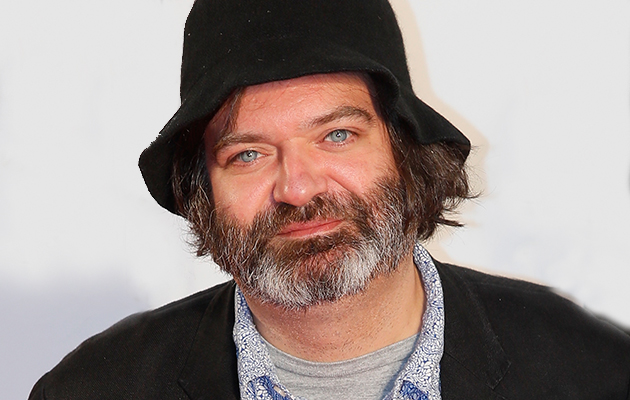By the turn of the century, O’Rourke had also developed a parallel career as a producer, consistently working on excellent albums like Smog’s Red Apple Falls and US maple’s self-titled debut. Jeff Tweedy’s passion for Bad Timing meant O’Rourke was soon enlisted to perform with the Wilco frontman at Chicago’s Noise Pop festival in 2000. O’Rourke brought along drummer Glenn Kotche, and the trio’s performance impressed Tweedy so much that he asked Kotche to join Wilco, and invited O’Rourke to salvage the messy sessions for what would become Yankee Hotel Foxtrot. The three also formed experimental collective Loose Fur, who cut their first self- titled album in summer 2000. “When Jim and Glenn and I get in a room together, Loose Fur records just happen,” marvels Tweedy. “Pure forward momentum and then a sudden realisation that we’ve completed a record and it sounds like us, and not very much like anything else.”
In fact, some of the highlights of Yankee… were de facto Loose Fur tracks, with the three left alone in the studio to strip back the over-layered recordings. The trio hit the studio again in 2006 to record the heavier Born Again In The USA, again in a matter of hours. “On any of the things we’ve done together,” says Tweedy, “I don’t remember a time working with Jim where I’ve felt anything less than love for, and from, him. That’s along with admiration, and appreciation that I get to be friends with and work with such a rare bird. A true genius. Believe it!”
“Jim is very good at imparting a personality on the music,” says Stereolab’s Tim Gane, “and that’s a great thing. Nothing’s covered up and that’s one of the aspects of Jim as a personality, everything is quite near the surface. His music really speaks of his personality.”
In 2000, O’Rourke moved to New York. There, he picked up studio work on various Sonic Youth projects which culminated in an invitation to join the group. It was, he admits, a bizarre occurrence for someone who had dismissed the band’s debut, Confusion Is Sex, as not being “noisy” enough back in the ’80s. O’Rourke brought guitar, bass and synthesiser along with his engineering and mixing skills, staying with the band for some of their best-loved late-period records – 2000’s thorny, ambitious NYC Ghosts & Flowers, the elegiac Murray Street (2002) and 2004’s superlative Sonic Nurse.
“Jim joining just seemed like the most natural thing in the world,” explains guitarist Lee Ranaldo. “He was so capable, we really loved hanging around him and working with him. I kinda felt like we were adding our Eno to the band, that was what I joked at one point. ’Cause he was doing a lot of stuff with one of those suitcase synthesisers Eno used to use with Roxy Music. I loved that period of Sonic Youth. Sonic Nurse was maybe the culmination of our work with him. I remember during the mixing, Jim was ill, he had the chills and the shakes, and was sat behind the mixing console for these crazy long endurance stretches with a scarf around his neck and a hat pulled down. We all really loved the way it turned out, though.”
O’Rourke released his third solo album, Insignificance, on September 11, 2001. incidentally, O’Rourke was at Sonic Youth’s Echo Canyon studio in downtown Manhattan that morning, just a few blocks away from the World Trade Center. “It was crazy,” is all he will say, evidently still finding it a difficult subject to discuss. With its stripped-down production and distorted guitars, Insignificance was quite the departure from Eureka. But O’Rourke’s own solo career was soon put on hold as his commitments to Sonic Youth grew. “Up until that point, I only played in Europe and Japan,” O’Rourke says. “Because you can’t tour the US with a guitar on top of a table, going ‘blonk, blonk, blonk’. So touring with Sonic Youth seemed like the most amazing gift and opportunity. But you can’t get off the rollercoaster as soon as you think. A friend of mine is in another band, and his wife has a great phrase, ‘the golden handcuffs’. I don’t mean to say I didn’t enjoy my time with them, it’s just that before you know it, two, three, four, five years have passed. The world of professional music is a machine. You’re not in control of your life anymore, the rollercoaster doesn’t stop. I really did enjoy playing with them, I got along with all of them great – but I had to get off the rollercoaster. That kind of life wasn’t for me. Not being able to do my own things just caught up with me.”


